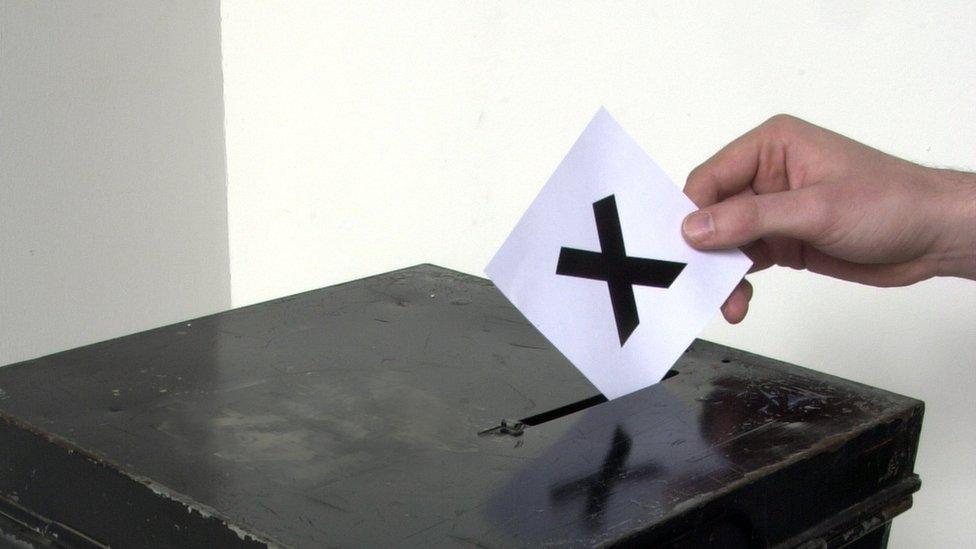Liverpool City Region: What does it mean for its people?
- Published
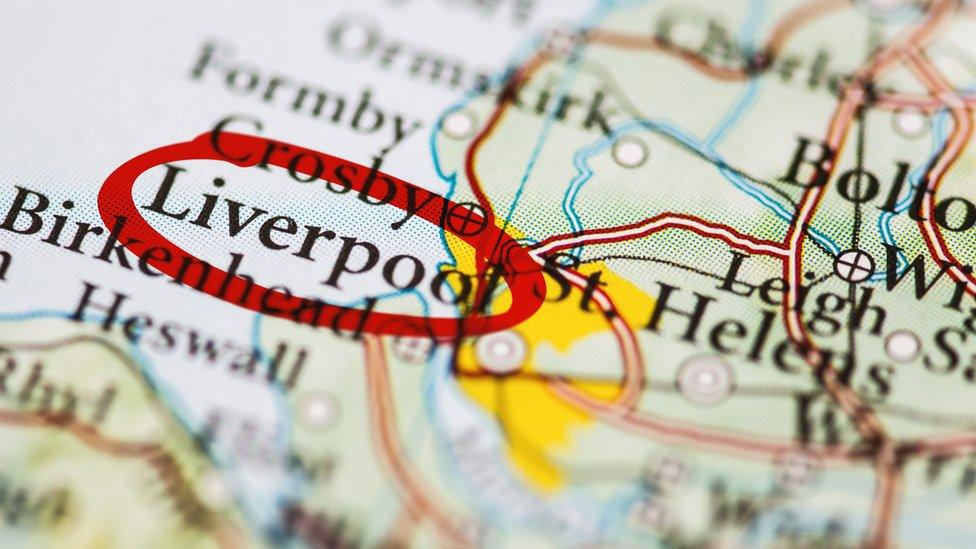
Where will the focus be for the new Liverpool City Region mayor?
On 4 May, the people of Merseyside - and a corner of Cheshire - will head to the polls to elect the first mayor of the Liverpool City Region.
While the name Liverpool City Region has been around for three years, it is the forthcoming devolution of powers to the mayor - from transport and housing to economic development - which will have a real impact on many areas of people's lives.
Devolution's architects argue that a group of councils will be able to achieve far more than they can acting alone, and this is why Merseyside's five boroughs - Knowsley, Liverpool, St Helens, Sefton, and Wirral - decided to join forces. Halton in Cheshire decided it also wanted to throw its lot in with the new club.
For some people, though, being part of Liverpool makes little difference.
And in some parts of the region, "Liverpool is anathema to certain people", according to University of Liverpool politics professor Jon Tonge.
One place he singles out is St Helens, a town which lies 14 miles to the east of Liverpool and is most definitely not on the banks of the Mersey.
At the town's college, people are split over whether being bound to Liverpool is a good thing, as a quick chat with a group of law and politics students suggests.
Joe classes the town as being "under Greater Manchester" as "there's not many differences" between it and near neighbour Wigan - which is one of Greater Manchester's 10 boroughs.
But his friend Richard says St Heleners are "all part of Merseyside and we are closer to Liverpool than we are to Manchester".
Geography sways how others think too - while Ben says the town is "on the border with everywhere [but] I would say it is part of Liverpool", Gareth says it has "cultural ties" to both Manchester and Liverpool, so is "a mixture of the two".

Liverpool City Region's Mayoral Election Candidates (listed in alphabetical order)
Roger Bannister - Trade Unionist & Socialist Coalition
Paul Breen - Get the Coppers off the Jury
Tony Caldeira - Conservative
Carl Cashman - Liberal Democrat
Tom Crone - Green Party
Tabitha Morton - Women's Equality Party
Steve Rotheram - Labour
Paula Walters - UKIP
Find out more about the candidates - and their key manifesto commitments
Local authorities included in the mayoral region: Halton, Knowsley, Liverpool, St Helens, Sefton, and Wirral

Prof Tonge said this straw poll of students, while obviously unscientific, shows why the name Liverpool City Region is controversial to some.
"Not everyone, especially in Wirral, Sefton and St Helens, wants to be associated with Liverpool," he explained.
"In places like Southport, Liverpool is anathema to certain people.
"St Helens is also very reluctant - they don't feel that they are Scousers and they don't want to be part of a Liverpool City Region.
"You can dismiss that as parochialism but there's also a political argument to be had - if you really believe in devolving power, why create these great conurbations?"
That is something playing on the minds of those in St Helens too.
Back amongst the students, Ben takes issue with having a regional representative, believing that devolved powers should be "more localised, because then mayors would have a broader knowledge of the local area", while Ashley says it is a bad idea to have "one person governing everyone's decisions".

What's in a name?
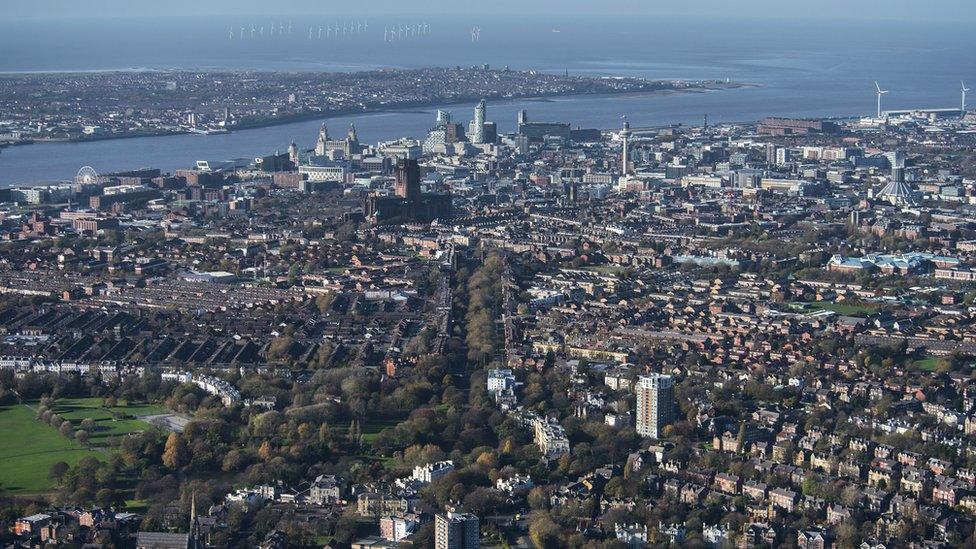
Made up of six council areas - Halton, Knowsley, Liverpool, Sefton, St Helens and Wirral - Liverpool City Region did not always go by that title
It was initially called Greater Merseyside Combined Authority, a short-lived moniker that did not test well when put out to consultation
The public preferred Liverpool to Merseyside - the councils involved could not agree on a collective name and it became the rather straightforward Halton, Knowsley, Liverpool, St Helens, Sefton and Wirral Combined Authority
On 1 April 2014, it became the Liverpool City Region Combined Authority at the organisation's first meeting

At a meeting of young entrepreneurs, held in the creative studios of Make Liverpool on the fringe of Liverpool city centre, the consensus was that the "prominence of Liverpool's global brand" far outweighs any "Liverpool-centric" concerns, according to the project's director Liam Kelly.
That said, he did concede the concerns have some legitimacy.
"When you take a moment to think about it, you can understand why there would be nervousness from the areas that are furthest away from Liverpool in terms of both identity and geography," said Mr Kelly.
Elsewhere at the gathering, opinions broadly agree.
James, a lab technician at Liverpool John Moores University, sees the extension of the name as a good thing, as it's a "city that is growing", while Patrick, a design engineer in the city, considers it a "sensible approach", though he does add a note of caution.
"There's always been that weird thing that everybody outside Liverpool city centre have historically been called names, so they have developed their own identities - it may feel to them like Liverpool is taking over."
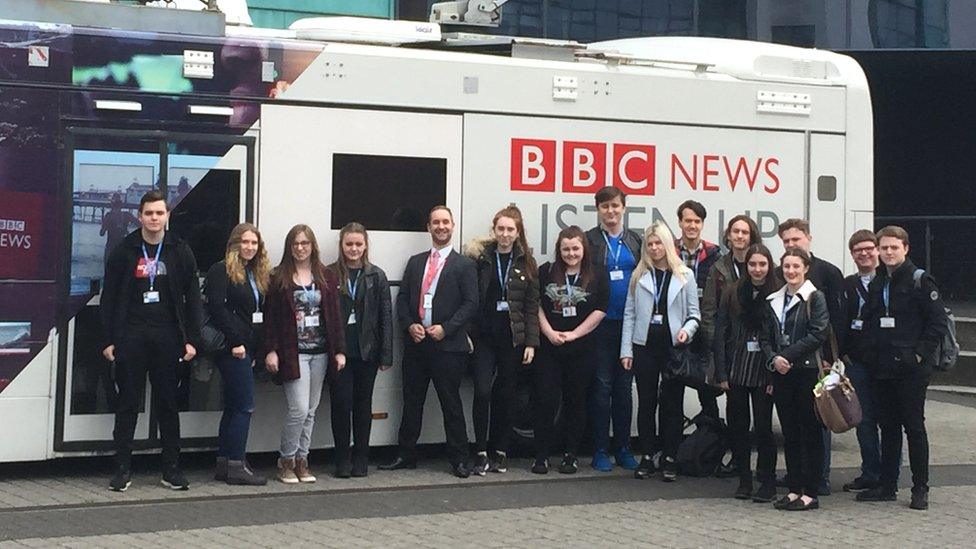
Prof Tonge says unifying the city region's 1.5 million inhabitants will be "a difficult trick" for the new mayor but pointed out the need for economic pragmatism.
"There's an awful lot of people living within the other areas who rely on Liverpool's economy for their livelihood, so they can hardly distance themselves from Liverpool.
"Ultimately, I think the view will be 'we're part of the city region, let's see how it goes'."
Back in St Helens, the students are not so sure.
Liam says the boundaries around the new area "are artificial" and arbitrary, so people may take time to come to terms with the "really sudden change", while his friend Jess is more damning, saying the town has "never been part of Liverpool", adding: "There's nothing that brings us together."
Quite how it will pan out remains to be seen, but for Gareth, a referendum on St Helens' status would help.
"I think there should be a vote put to St Helens to see which area they want to be lumped in with."
The very phrase "lumped in with" suggests a great deal remains to be done to win over the hearts and minds of everybody.
- Published19 April 2017

- Published14 April 2017
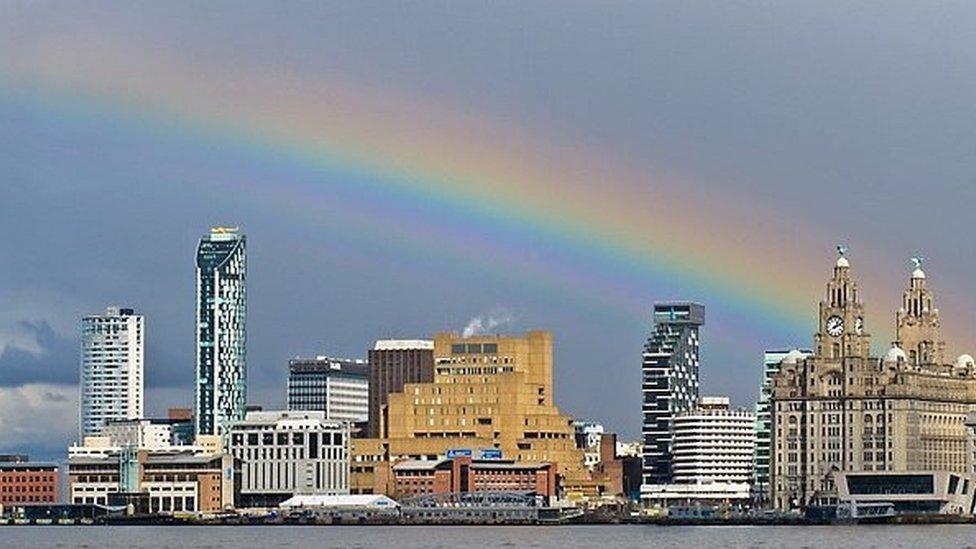
- Published5 April 2017
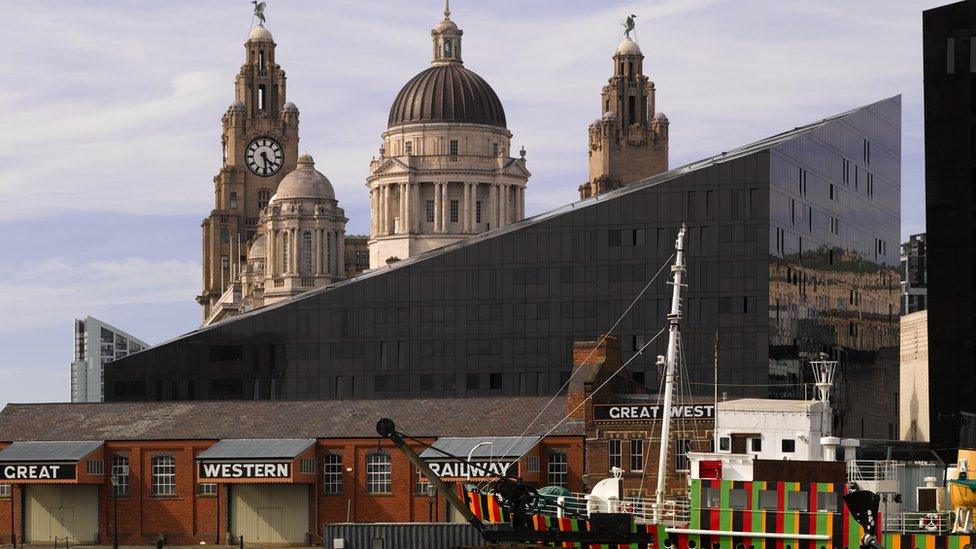
- Published5 April 2017
